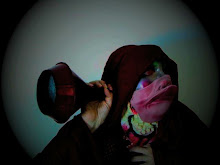How can Blanchot write?
What would it mean to speak of Blanchot’s impossibility of possibility as a possibility? Surely we would have moved no further than Heidegger in saying the possibility of impossibility; allowing that which cannot be grasped to somehow be caught in its inherent ineffability? Or would we signal something Other; would we signal the possibility to never speak of the impossible as something akin to Wittgenstein’s zone of silence whereby what cannot be said should not be spoken but to not speak signals the decision?
What is it which thus allows Blanchot to invert Heidegger, to speak of the impossibility of ever seeing what cannot emerge? Is it a hovering between the impossibility of possibility and the possibility of impossibility such that it never settles in either, which can thus never be said to be possible nor impossible but rather both simultaneously such that the zone of silence will never do but nor will Heidegger’s salience? But then surely we have moved no further than earth and world caught in an endless battle like Yin and Yang, such that neither wins nor loses but rather from the dust of battle a certain openness is won. And yet Blanchot is consumed by darkness, or as Levinas says, like a ‘night manifesting itself within night’, Blanchot wanders a darkness which will never come to day. But then the question remains, in writing does Blanchot not speak of this darkness even if only to feign it? Do we not render it possible by speaking of it’s impossibility, or do we forever render it alien to us such that somewhat like a wooden iron, the (brace yourselves) impossibility of possibility does not signal the possibility of the impossibility of possibility but rather the impossibility of possibility is just that and nothing more; an unforgiving realm of impossibility which designates a region in which no possibility can ever be spoken.
To ask then, how does Blanchot write, if to write signals such an impossibility, is to attempt to bring his work back into the realm of the possible. For to write is to write of nothing, to write in nothingness and to let nothingness emerge in writing. To speak of the artwork then as impossibility is to speak of nothingness, allowing here for nothingness to refer to no-thing. Words then are mere simulacrums of emptiness, hollow shells of impossibility which encase nothing possible but an absence which has and always will be absent. In bringing the ineradicable reserve of impossibility forward as the preceding term within the paradox, Blanchot’s impossibility consumes everything in its path; earth consumes world and night consumes day such that nothing is left to be brought into the light as there remains only a desolate expanse shrouded in darkness.
hmmmm...this is indeedy the wonderful wonderful question that pulls, that tugs, that opens and endlessly evokes the impossibles. If we remove those names we find that they can be replaced equally by others, Stein, the mystics, a certain range of poets-all breaking frames that we once thought soldid..stiff. Within the particulars of language, its grammar its common meaning, its sound even, it is full of walls and closed spaces...closed to unmeanings, unsound, unshapes, patterns, filds, maybe realms? In certain hands and with certain ears to hear it language can and does speak the impossible...its a big slow project. many are involved in it and use different tools at the coal face, sometimes the boys were held too tight by philosophy itself to reach out and pick up THAT and say it. Instead of black and white the inbetween space the mandorla as jung once named it, is the best starting space. may artists writers musicians and philosopers are using it as at least a starting point, even though they are not at all interested in Jung, its a zen term/idea-the middle path---Thanks Ibitsu for posting this question it is 'the question' always.
What is it which thus allows Blanchot to invert Heidegger, to speak of the impossibility of ever seeing what cannot emerge? Is it a hovering between the impossibility of possibility and the possibility of impossibility such that it never settles in either, which can thus never be said to be possible nor impossible but rather both simultaneously such that the zone of silence will never do but nor will Heidegger’s salience? But then surely we have moved no further than earth and world caught in an endless battle like Yin and Yang, such that neither wins nor loses but rather from the dust of battle a certain openness is won. And yet Blanchot is consumed by darkness, or as Levinas says, like a ‘night manifesting itself within night’, Blanchot wanders a darkness which will never come to day. But then the question remains, in writing does Blanchot not speak of this darkness even if only to feign it? Do we not render it possible by speaking of it’s impossibility, or do we forever render it alien to us such that somewhat like a wooden iron, the (brace yourselves) impossibility of possibility does not signal the possibility of the impossibility of possibility but rather the impossibility of possibility is just that and nothing more; an unforgiving realm of impossibility which designates a region in which no possibility can ever be spoken.
To ask then, how does Blanchot write, if to write signals such an impossibility, is to attempt to bring his work back into the realm of the possible. For to write is to write of nothing, to write in nothingness and to let nothingness emerge in writing. To speak of the artwork then as impossibility is to speak of nothingness, allowing here for nothingness to refer to no-thing. Words then are mere simulacrums of emptiness, hollow shells of impossibility which encase nothing possible but an absence which has and always will be absent. In bringing the ineradicable reserve of impossibility forward as the preceding term within the paradox, Blanchot’s impossibility consumes everything in its path; earth consumes world and night consumes day such that nothing is left to be brought into the light as there remains only a desolate expanse shrouded in darkness.
hmmmm...this is indeedy the wonderful wonderful question that pulls, that tugs, that opens and endlessly evokes the impossibles. If we remove those names we find that they can be replaced equally by others, Stein, the mystics, a certain range of poets-all breaking frames that we once thought soldid..stiff. Within the particulars of language, its grammar its common meaning, its sound even, it is full of walls and closed spaces...closed to unmeanings, unsound, unshapes, patterns, filds, maybe realms? In certain hands and with certain ears to hear it language can and does speak the impossible...its a big slow project. many are involved in it and use different tools at the coal face, sometimes the boys were held too tight by philosophy itself to reach out and pick up THAT and say it. Instead of black and white the inbetween space the mandorla as jung once named it, is the best starting space. may artists writers musicians and philosopers are using it as at least a starting point, even though they are not at all interested in Jung, its a zen term/idea-the middle path---Thanks Ibitsu for posting this question it is 'the question' always.













No comments:
Post a Comment